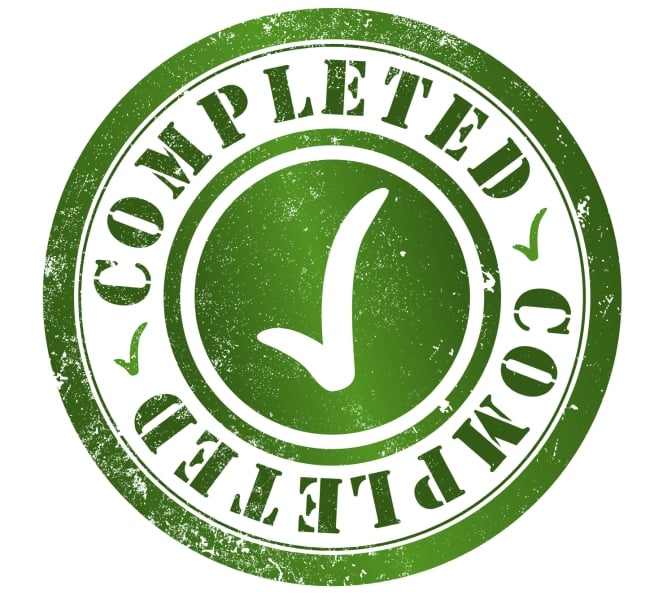You have /5 articles left.
Sign up for a free account or log in.

iStock / pepj
I have finally have realized my life-long dream of earning a Ph.D. after I successfully defended my dissertation in history at Rutgers University in New Brunswick. Lately, I have been reflective of my experiences. I thought I would share my own dissertation journey and chronicle the top 10 steps that I took in order to successfully go from the stage of writing and defending my proposal in September of 2012, to completing the writing and defending my dissertation within two academic years.
1. Shift from thinking about a dissertation to writing a dissertation. Initially, you may go through a phase of fearing your dissertation. Like me, you may start your journey by buying several "self help" books, like Writing Your Dissertation in 15 Minutes a Day, by Joan Bolker, or Writing Your Journal Article in 12 Weeks by Wendy Belcher. I bought and read these books, in addition to reading various articles and blogs online when I stated my dissertation process. However, I soon realized that I had to get to the point of simply just writing the dissertation rather than thinking about how I would write my dissertation.
2. Write every weekday. One of the best tips that most graduate students will receive about how to write a dissertation is simply to write every day. However, what does this mean? Most graduate students have generally tended to follow the purge strategy to write graduate course final research papers close to the deadline instead of planning ahead. This creates a vicious cyle of producing poorly written papers that are generally not as polished as they should be. By the time you get to the dissertation stage, you have to think through the mechanics of your writing, and figure out your own writing kinks. Better yet, ask your faculty members and graduate student colleagues for suggestions. Take the weekends off to rejuvenate and enjoy yourself.
3. Create layers of virtual accountability. Fortunately, I joined Kerry Rocquemore's Faculty Success Program (FSP) in the Fall of 2012 because I learned about her program by joining her listserv to receive weekly notes of encouragement from her, called "Monday Motivators." The FSP program provided me a crucial layer of "virtual accountability" that I needed. I was teaching at a community college full-time (5/5 teaching load) during my first year of my dissertation writing journey, and so I knew I needed guidance on how to effectively juggle my time. Through the use of an online platform, called Finish Agent, I logged in daily to report to my small group of participants on such things as my daily writing goals, how long I wrote, how to monitor my teaching prep and grading time, and what treat I gave myself for achieving my daily goals. I especially loved this "treat" idea because it made the writing process more fun when scheduling my week of writing to flag my calendar for treats, such as getting myself a manicure when I editing my introduction paragraph on one day, or going to the movies to celebrate completing "crappy first drafts" of two new paragraphs on another day.
I participated in an online Academic Writing Club geared more towards graduate students during one month when the FSP program did not provide the online virtual accountability support in between semesters. During that month, it was crucial for me to have virtual accountability to help me complete editing and submitting my first dissertation chapter by the end of December of 2012.
Finally, and more importantly, I learned how to effectively use good time management methods, like using the computer app for the Pomodoro Technique, to focus on writing and/or research into "poms," or 25 minute increments, followed by a 5 minute break. I never planned to ever write more than 8 "poms" in a day to sustain my energy.
4. Monitor your mental, physical, spiritual and emotional health. Writing a dissertation can be obviously be stressful. During one semester early on in my dissertation writing journey, I joined a dissertation support group provided by my university's counseling department. It was great to connect with other graduate students from other departments, and publicly confess to the various ways that the dissertation was stressful. I enjoyed hearing and sharing about personal issues, such as managing relationships with one's dissertation advisor and committee members, juggling various time constraints, and dealing with how to effectively sleep. For the latter issue, I had to grapple with figuring out a way to sleep more, because some nights, I'd wake up in the middle of the night with random thoughts about my dissertation. I typically would record a voice memo on my cell phone. Also, I would keep the brightness setting on my cell phone low so that my sleep would not be as interrupted by the bright light.
More broadly, for each the various layers of my overall health, I tried to plug into my weekly schedule going to the gym classes, like Zumba, or listening to an inspiring sermon or reading inspiring messages and quotes. I also tried to have some degree of work/life balance by having an incredibly supportive husband who often would listen to me ramble about ideas about my dissertation, or would give me hug, flowers, or even a simple a joke at moments when I felt stressed.
5. Research OR write vs. Research AND write. Some graduate students think that they have to separate out the process of researching data for the dissertation or writing as you research. Fortunately, my dissertation resulted from the ideas that I already started to formulate based on a seminar paper I wrote several years prior. I had created a database of the sources I used in that paper using Microsoft Excel. By the time I wrote my dissertation, I added to this database in order to help me figure out my arguments, such as themes and the changes over time, in my dissertation. While some students prefer Scrivener or other tools, Excel worked well for me. However, I had to be careful to not delete information from cells when moving from tab to tab.
6. Plan ahead for potential outside funding opportunities. Most faculty members will write letters of recommendation letters for you to apply for dissertation completion funding if they have read at least two chapters of your work (obviously depends on the faculty member, the discipline, etc). Fortunately, my advisor told me this early on, and so I planned ahead to meet the deadline she suggested.
7. Following your bliss vs. your chapter outline. I began writing what eventually became Chapter 3 of my dissertation first because I was most excited about the sources that I included in that chapter. I felt that by following my bliss, it helped me to have more fun rather than starting with a chapter that I was nervous about writing. After writing a portion of that chapter, I shifted to writing what I thought would be my first chapter. That chapter ended up being split into two chapters, as I realized that I had too many sources and arguments that I was trying to squeeze into one chapter.
8. Use conference deadlines to you keep a good pace of writing. Planning ahead by submitting a few conference proposals helped me to think ahead about future chapters I would write if my proposal was accepted. By presenting at conferences, it forced me to write portions of dissertation chapters over time at a good pace.
9. Create a feedback loop. I worked in a few writing groups with other graduate students both on and off my campus. We would swap portions of pieces of writing and also set a confidentiality agreement to not share each other's work. We had to develop a sense of trust and accountability towards each other to help strengthen each other's work. We also had our own Google hangout groups to help motivate each other daily, and would indicate our writing status in our gmail.com accounts during the day in order to sync our timers together and write.
10. Network with scholars in your field. When I attended conferences, I would often meet various scholars in my field and discuss my work. Sometimes these brief exchanges resulted in scholars sharing sources with me, or asking a critical question about my project that helped me to sharpen my arguments. The more you talk about your project with scholars in your field, the better you'll understand why your project is significant. To put it plainly, you'll be able to better answer the dreaded "so what" question that you'll receive when explaining your project. Also, I wrote emails to various scholars and most were responsive to scheduling brief phone conversations, or email exchanges about questions and ideas that helped shape my project.




